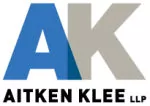Paid Search Engine Tools, a corporation normally resident outside Canada, is the owner of Canadian Patent No. 2,415,167 entitled "Paid Search Engine Bid Management". In January 2018, PSET sued Google, alleging that Google's profitable AdWords product infringes the 167 Patent. Prior to filing a Statement of Defence, Google brought a motion, pursuant to Rules 416 and 418, seeking have PSET post $1.5 million in security for costs for all stages leading to trial.
Security in Stages
Prothonotary Aylen refused to order security for the entire action, holding that any such order would be speculative based on the insufficient evidence adduced by Google on its motion. Instead, Prothonotary Aylen held that she would fix security for costs up to the end of discoveries, without prejudice to Google seeking additional security, based on proper evidence, should the circumstances require.
Quantum of Security
Prothonotary Aylen started by noting that while security for costs is an indemnity that cannot be illusory, it cannot be so oppressive as to prevent the plaintiff from bringing its patent infringement action. While Google had provided a draft bill of costs seeking between approximately $250,000 and $500,000 in counsel fees (depending on which column of the Court's Tariff B was used) and more than $1.25 million in disbursements, Prothonotary Aylen held that these amounts were not supported by any affidavit evidence. At the hearing of its motion, Google provided a revised bill of costs that reduced counsel fees to approximately $197,000 to $287,000 and disbursements to $1.046 million.
In considering the appropriate amount of security to order, Prothonotary Aylen held:
- There was no evidence of vexatious behavior by PSET.
- The complexity of the proceeding, in and of itself, does not warrant an increased quantum of security.
- There is no basis to depart from the default Column III of Tariff B for counsel fees.
- There was no evidence that the various Google defendants will be engaging in separate defences, such that multiple duplicative line entries in Google's draft bill of costs (including for separate Statements of Defence and Affidavits of Documents) were improper.
- It was not clear on the evidence that more than one counsel would be required for the various steps in the action, including for the preparation of pleadings.
- Google provided no evidence for its speculative and excessive claim of $120,000 for expert fees up to the completion of discoveries.
- Costs for e-discovery and data storage are part of a firm's overhead and are not recoverable.
- $25K for printing and binding up to the end of discoveries was excessive.
Prothonotary Aylen agreed with PSET that $100,000 in security was an appropriate quantum up to the end of discoveries and ordered that PSET may satisfy the security by paying that amount into court, by filing a bond in a form acceptable to Google or by filing an irrevocable letter of credit from a reputable financial institution in a form acceptable to Google.
A copy of Prothonotary Aylen's Order may be found here.
PSET was successfully represented on the motion by Marcus Klee, Scott Beeser and Devin Doyle of Aitken Klee.
The content of this article is intended to provide a general guide to the subject matter. Specialist advice should be sought about your specific circumstances.

